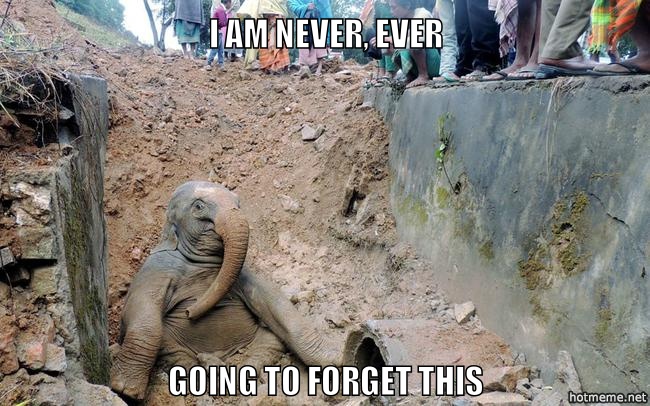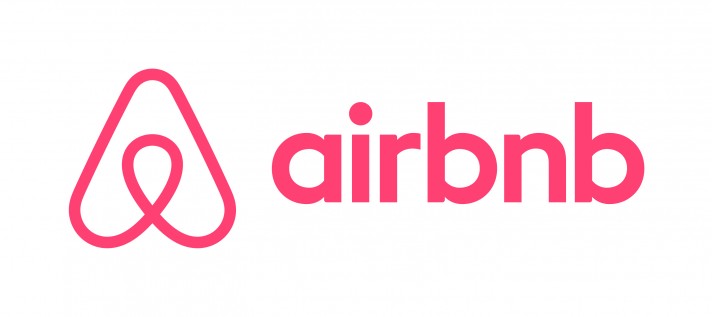The internet has created a new class of entrepreneurs who focus on “loophole chasing” – loophole chasers find opportunities for profit not necessarily by solving problems for customers or creating value, but by taking advantage of inefficiencies in a platform, or across-platforms.
Some popular examples of loophole chasing online include:
- SEO niche sites
- Most forms of affiliate marketing
- Craigslist/Ebay/Amazon arbitrage
There’s nothing inherently wrong with loophole chasing, but the problem is that not everyone does it with a full awareness of what they’re actually doing, why they’re doing it, what its implications are, and how it fits into the larger picture of building an online business.
How To Tell If Your Business Is Actually A Loophole
There are at least 2 elements required for a viable business:
- A value-adding product
- Distribution.
Loopholes are a way for 3rd parties to extract value from the distribution side, without adding value. Loopholes are traffic generation tactics, monetized without owning a value-adding product. 
Your business might be a loophole if:
- You’re one algorithm update/terms of service change/affiliate program shut down away from closing up shop.
- You’re extracting value from the system, but not adding any.
- Your business’ fate is tied 100% with another company’s existence.
Just Because A Business Isn’t A Loophole, Doesn’t Make It Robust Either
Whether or not your business is a loophole is binary – it either is, or it isn’t. But every business also falls on a spectrum of robustness. On one end of the spectrum, there are pure loophole “businesses” – sandcastles built at low tide, destined to be swept away at the next half rotation of the earth.
On the other end of the spectrum there are businesses that dominate their market – powerful fortresses built to last for centuries, protected against competitors by a wide moat. In tech, these are the types of companies Peter Theil calls the “last movers”. In older industries, these are the types of companies that made Warren Buffett the greatest investor of our era.
A loophole by definition is not robust, but plenty of so-called “real” businesses aren’t robust either.
Let’s See These Concepts At Work
A typical “brick and mortar” distributor is a middleman, but is not a loophole because it adds value by making a large selection of wholesale goods accessible to small-mid size businesses, which in turn makes them accessible to local customers. These days, its usually not an especially robust business because a vertically integrated giant like Wal-Mart or Amazon can come along, eliminate the distributor AND the small business, then simply offer the same value directly to the customer at a lower cost.
 Niche sites on the other hand are simply designed to position themselves between the customer searching for a product in Google, and the business providing the product. The niche site owner extracts profit from the system in the form of ad clicks or affiliate commissions. It simply takes advantage of a weakness in Google’s algorithm and adds limited value, which makes it a loophole.
Niche sites on the other hand are simply designed to position themselves between the customer searching for a product in Google, and the business providing the product. The niche site owner extracts profit from the system in the form of ad clicks or affiliate commissions. It simply takes advantage of a weakness in Google’s algorithm and adds limited value, which makes it a loophole.
All things being equal, it’s better to have a more robust business – the larger the “moat” between you and your competition, the better. But having a “real” business isn’t inherently better than monetizing loopholes when you take other factors into account. In fact, aggressive “loophole chasing” can be a lot more profitable, lower risk, and offer advantages over building a so-called “real”, but non-robust business. Of course, loopholes also have a lot of characteristics that – while attractive – can also detract an entrepreneur from building a great business.
Let’s take a look at some of the pros and cons of chasing loopholes vs. being a typical bootstrapping entrepreneur focused on building a sustainable, value-adding business.
The “Maneuverability” Factor
For the newbie solopreneur, the biggest advantage of loophole chasing over building a “real” business is maneuverability. Loophole chasers can be purely ROI driven right from the start and don’t need to invest in building a product, while an inexperienced entrepreneurial bootstrapper can get stuck on a single (bad) business idea and invest months, even years into it.
Aggressive loophole chasing – systematically identifying profitable loopholes and scaling them – can be a lot more high growth and lower risk than trying to grow a business that has low robustness. You read nightmare stories of entrepreneurs who spent years working 80 hours to build a business, only to lose their life savings and end up dead broke. I rarely hear that story among loophole chasers.
Would you rather invest a few thousand dollars into building and ranking a couple of solid (but ultimately disposable) niche sites, or invest that same money into creating a product that has little competitive advantage, or even worse – for which there isn’t any market? The market may not need another niche site either, but the loophole chaser has a plan to earn a profit nonetheless.
Of course, this maneuverability can be a loophole chaser’s greatest weakness – there are loophole chasers who jump from tactic to tactic, never really mastering anything. These types of loophole chasers usually doesn’t make much money.

The “Eureka” Factor
A lot of you can probably relate to this feeling – you know you want to build a business, but you don’t really have “an idea” you want to pursue. You’ve read books, listened to podcasts, browsed forums, followed blogs, participated in mastermind sessions – and none of it has resulted in a business idea you feel confident executing. It’s easy to be so overwhelmed with the enormity of the challenge that it’s hard to get started.
With loophole chasing, you don’t actually need “an idea” to get started. This allows you to take action almost immediately, instead of getting paralyzed by trying to come up with the perfect idea.
Going after a loophole can be appealing because it offers a way to move forward – you eliminate the need to create a value-adding product and skip right to the action. It’s much easier to build up inertia when all you have to do is set yourself up on a paid traffic platform, pick an offer, and start testing, or buy a few expired domains, do some keyword research, order some content, and setup a few WordPress sites.
If you don’t have an idea you feel confident executing, sometimes it can seem better to just go chase a loophole for awhile, rather than feel paralyzed by the prospect of building and growing a “real” business.
The “Moving Parts” Factor
Loophole chasing is maneuverable because it requires few moving parts. The loophole chaser doesn’t have to handle any of the entrepreneurial  challenges that come with building a value-adding product. Instead of worrying about coming up with a product idea, finding product-market fit, developing the product, constantly refining the product to grow the business, serving customers, and doing all of it without going into tremendous debt – chasing a loophole allows you to focus on a small handful of tactics with well-defined steps and clear objectives.
challenges that come with building a value-adding product. Instead of worrying about coming up with a product idea, finding product-market fit, developing the product, constantly refining the product to grow the business, serving customers, and doing all of it without going into tremendous debt – chasing a loophole allows you to focus on a small handful of tactics with well-defined steps and clear objectives.
With paid affiliate marketing, you only have to figure out how to drive traffic and convert that traffic. With MFA (made for adsense/amazon/affiliate) niche sites, it gets even simpler – you really only need to learn how to drive SEO traffic.
The “Embarrassment” Factor
If you trip and fall, you would get up and brush yourself off. You would think nothing of it. But if you trip and fall walking onstage in front of thousands of people, it could be a humiliating moment. The same principle can apply to entrepreneurship.
When you set out to build a business as a bootstrapping entrepreneur, you’re often putting your vision out there for everyone to see and judge. When you’re putting your blood, sweat and tears into a business, there’s no hiding in the shadows and shrugging your shoulders when your Adsense earnings drop 500% after the latest Google update. Your failure is a lot more public.

The “Pride” Factor
The flip side of the embarrassment factor is that as an entrepreneur building a sustainable business, you have a chance to build something that you can be truly proud of. You as an entrepreneur can build a business that enriches your own life and has a positive impact on the lives of your employees and customers. Instead of simply extracting value from the system, you can offer value.
It’s definitely nice to put some money in the bank and its nice to have passive revenue streams that don’t require much maintenance and it can even be lots of fun to game Google, but you don’t get a deep sense of satisfaction and accomplishment from building successful niche sites.
Maybe your goal with online business is purely cash flow and you don’t give a damn about building something you can be proud of. But there will be a time when you do – there’s only so long you can drink from coconuts on the beach.
The “Skillset” Factor
“There is no such thing as the right job. Whatever job you take, you are getting paid to learn. You will learn more from a bad company than you did in school. I always recommend taking the job and learning as much as you can from it, and you can learn from any job, and then using that knowledge to help you get to the next job.” – Marc Cuban
The same principle that applies to jobs applies to loophole chasing – you can develop valuable skillsets while loophole chasing – valuable skillsets that can help you build a sustainable business down the road. For example, being a successful affiliate marketer with paid traffic means you need to develop a strong marketing skillset: you’ll need to become good at headline creation, creating eye catching ads, conversion rate optimization, and understand at least 1 paid traffic platform inside and out.
Depending on your market and the scale of your business, you’ll also need to develop skills in copywriting, email marketing, building systems, hiring, and optimizing lifetime customer value. If you apply these skills to promoting a product that solves a real need in a large market, you’ll make money and also build a valuable long-term asset. But while successful affiliate marketers may possess a valuable skillset, most are using those skills to build someone else’s asset.

Becoming a successful loophole chaser can also help you develop the psychological toughness needed to be a successful entrepreneur. Going after loopholes means drastic ups and downs – if you’re successful, you can be on top of the world, but that can often crumble overnight, forcing you to rebuild. Go through enough cycles of this, and you can quickly learn not to view every setback as a catastrophic failure.
On the other hand, I once read a great quote on a blackhat forum that went something like this (greatly paraphrasing): “If the internet disappeared one day and the typical SEO had to sell a product, their strategy would involve trying to rebuild the internet and rebuilding Google so they could rank their site.”
 There’s a lot of truth in that, and lots of examples of SEOs so focused on ranking a specific keyword as cheaply as possible they lose sight of the big picture. Chasing a loophole can give you the illusion of building a valuable skillset, while often you’re really just learning to master a single tactic that can become obsolete overnight. If you’re focused 100% on SEO, ask yourself whether you would be able to drive traffic if a Google update destroyed every tactic you currently use. If the answer is no, then you’re probably not building a useful skillset.
There’s a lot of truth in that, and lots of examples of SEOs so focused on ranking a specific keyword as cheaply as possible they lose sight of the big picture. Chasing a loophole can give you the illusion of building a valuable skillset, while often you’re really just learning to master a single tactic that can become obsolete overnight. If you’re focused 100% on SEO, ask yourself whether you would be able to drive traffic if a Google update destroyed every tactic you currently use. If the answer is no, then you’re probably not building a useful skillset.
Bottom line is that if you’re taking a “paint by numbers” approach to loophole chasing where you’re finding formulas that work and simply applying them mindlessly, you’re probably not building a valuable skillset. But if you’re thinking independently and using logic to identify aspects of a platform you can profitably game and use to drive traffic, that type of thinking can be applied to growing a sustainable business. You can even apply short-term “loophole” tactics to fuel the growth of a long-term business, but it shouldn’t be the core of your growth strategy.
The “Predictability” Factor
Driving SEO traffic feels predictable compared with starting a “real” business. If you know X keyword has X search volume, X CPC, X Advertiser competition, and the top 10 results in the SERPs have X metrics, you can predict with reasonable certainty how much money you’d make if you made it to position #1, your chances of getting to #1, and a likely timeline for reaching #1. But building a “real” business means coming up with a product idea and finding “product-market fit”, which is much more difficult to quantify, and thus feels a lot less predictable.
Teaching the process to identify a niche, do keyword research, and build a niche site is straightforward. Doing it with a “real” business is more difficult, because there are so many more variables in play. Of course, the reality is that while it may be easier to find a straightforward gameplan to take advantage of a loophole, loophole based businesses are never predictable.
The “Asset” Factor
When you’re building a robust business – every dollar you add to your bottom line is building asset value, not just immediate profit. A $20,000 a month SaaS business can be worth 7 figures, whereas $20,000 a month in affiliate revenue is just that – $20,000 a month. If you have a niche site that drives consistent SEO traffic, you might have an asset worth 1-2 years revenue, but rarely more than that.
If you’re focused on short term loophole tactics, think about the ROI that could be gained if you applied those tactics towards growing a product you owned. One of the ways that AirBnB started driving traffic to their product was by spamming craigslist. If the founders were taking a loophole approach and spamming to get traffic to their affiliate links, they would have nothing now. But because they were adding users to an incredibly valuable product that addressed a massive market inefficiency, and that they were constantly refining the product for growth, these short-term tactics helped them build an asset worth billions.

A Loophole Chaser’s Approach To Building Value-Adding Businesses
At this point, you might be tempted to conclude that loophole chasing is the way to go if you’re just starting in online business. But that conclusion assumes that creating enough value to build a sustainable, value-adding business is much harder than finding a profitable loophole. While that’s often the perception, it’s not always reality.
If you do have a “loophole exploitation” skillset and you’re making a living online, maybe loophole chasing is the right move for you at the moment. But maybe not – have you actually sat down and looked at the ROI you could achieve by taking those skills and using them to drive traffic to a value-adding asset that you created and owned?
If you don’t have an online income stream at the moment, worrying about building a sustainable business and dealing with all of the moving parts can seem overwhelming. What if your goal is simply to generate some short term cash and prove to yourself (and maybe your loved ones) that you can make a living online?
You can approach business building with most of the advantages of loophole chasing and few of the downsides by taking a systematic approach to finding product-market fit. Some proven methodologies for getting started include:
There are lots of ways to approach value-adding business building from the loophole chaser’s mindset – but you have to abandon some of the most common flaws that make loophole chasing an endless merry-go-round to nowhere.
- You have to start asking the hard questions about what people want, not just where you can squeeze out profit from the system.

- You need to look for ways to retain users, not just drive traffic.
- You need to start thinking in terms of years, not just months.
Most importantly, you need to take off the blinders and remember the ultimate goal isn’t to “beat Google”, or “beat Facebook”, or beat whatever platform you’re leveraging. The goal is to create profitable business model that offers unique value for the people that find your business.
Your biggest advantage as a loophole chaser is that you’re already trained to look for an angle to “hack” the system. But you do have to step back and look at a bigger system – not Google, not Facebook, not Pinterest, not Twitter, not Craigslist – but markets instead. If you take the best parts of the mindset that worked for you as a loophole chaser and apply it to building a real business, there’s no reason you can’t find even greater success.
Dan Mowinski says:
Hi Nate,
Great article and something I’ve been thinking a lot about myself recently…so it’s great to hear somebody else’s understanding.
I wonder, do you think that maybe the dichotomy you’re explaining isn’t as clear cut? I know that you talk about the cross-over of skills, but do you think that spotting platform inefficiencies is as much part of an opportunity-seeking entrepreneurial approach as with what’s involved in the “traditional” approach (determining something that people genuinely want then marketing it)…and that, together (as opposed to either/or), they both comprise the best way of doing things. Maybe the SEO guy who sees a way to manipulate Google isn’t actually all that different, for example, from the market stall-holder that realizes he can get more “traffic” by relocating next to the street-performers (if that example makes sense…).
ALL online business, at the end of the day, is getting people from one platform (whether that’s social media, other blogs or a search engine) to yours – the difference between the two approaches, it seems to me, is that the loophole way rests on a technical know-how and the other on a more traditional approach wherein you’re able to get people talking about your product, largely because it solves a market need…but can’t the two come together in one approach?
Wrote a bit more than I intended there! Like I say, well-written and timely article. :)
Nate Tsang says:
Thanks for the great comment Dan. I think we’re thinking along the same wavelengths, but let me try to clarify my thoughts a bit if it wasn’t too clear in the article.
I actually wrote this post about half a year ago and it wasn’t published until now, so I need to re-read it to see if I was clear on this, but I agree its not a clear cut dichotomy at all. I didn’t intend this article as a knock on entrepreneurs hustling to take advantage of platform inefficiencies – more as a call to action to leverage that ingenuity and knowledge into something bigger.
I think being good at spotting platform inefficiencies, taking advantage of them, and scaling – is a great skillset to have.
But I also see SEOs who are so focused on spotting platform inefficiencies (including myself) that sometimes we forget to look at the bigger picture – your market stall-holder is a great example of this actually.
The hustling market stall holder who can get more traffic by re-locating next to street performers will do well for himself – but if he’s only focused on finding the next great location for his stall – he will never do as well as the market stall holder who has a laser focus on honing a product/experience that people love so that his stall becomes a destination in itself, which he systemizes and expands to more stalls, and eventually a franchise that scales across the country.
I have to respectfully disagree with you here. I believe getting people from one platform to yours (traffic generation) is just 1 part of online business. Once you get them to your platform, you also need to:
#2 Convince them to stay
#3 Convince them to tell their friends
Without 2+3, traffic will always just pass through, and its impossible to get that hockey stick growth curve that every online entrepreneur dreams of.
Its definitely easier to get good at #1 (traffic generation) if you focus exclusively on it for awhile via SEO/affiliate marketing, but its dangerous to lose sight of the fact that in the big picture – #1 is worthless without #2 and #3. If you think about it, the ability for loophole chasers to make money from #1 only exists because other entrepreneurs are using loophole chasers as part of their #1 (traffic generation strategy), while building a product that users get a ton of value out of.
They can definitely come together because like you said, it’s not a dichotomy.
In the article, I give the example of spamming craigslists. Lots of people spam craigslists…most of them accomplish nothing other than annoying craiglist users. A few of them might make 4-5 figures / month for awhile before that income dries up when their loophole gets plugged.
AirBnB on the other hand spammed craigslist and leveraged that into a 13+ billion dollar company, because they combined a loophole w/ a great brilliant product that people loved.
The difference between the two approaches imho, is that the loophole chasers focus only on #1 (traffic generation), without taking into account 2+3. Its a valuable skill to be great at exploiting loopholes and getting people to a platform, but the way to leverage that into something bigger and sustainable is to drive that traffic to a great product that fills a need.
Nate Tsang says:
Just re-read the article. I can see where it gave the impression I’m emphasizing the dichotomy between business and loophole chasing. The article IS called chasing loopholes vs building sustainable businesses after all.
If I were writing this article today, I would have focused more on how loophole chasing fits into the bigger picture of online business as a way to monetize traffic without owning a product, and less so on contrasting the differences between the two mindsets (loophole chasing vs. building sustainable businesses).
I still think contrasting the two mindsets is interesting, but I think the article would have been much more constructive if I focused on how one piece fits into the other.
Dan Mowinski says:
Hey Nate,
Thanks for the reply, it’s definitely helped clear my own thinking up. I meant to say, “all TRAFFIC GENERATION, at the end of the day, is getting people from one platform (whether that’s social media, other blogs or a search engine) to yours” – but, as you say, that does exclude direct traffic. I suppose my point was that, if traffic comes about as a result of people sharing a great article instead of you having sussed a way to cheat the Google algorithm, is it inherently “better” traffic?
I think my own confusion comes, like you say, from trying to fit the two together into a bigger whole and ascertain where “loop-holing” ends and “real business” begins. I think the line is definitely a blurry one if it even exists at all!
I wonder about the difference between the blogger who optimizes his blog posts to take advantage of Google rankings and the one who doesn’t (is the first blogger, in using his understanding of KWs and SERP competition, taking advantage of a loophole?). What about if that first blogger, along with all his “real” marketing activities and great articles that people want to talk about, performs an outreach campaign whenever he publishes an article with the intent of building links purely to help with rankings. (Something he wouldn’t otherwise do if Google didn’t exist.) Does that qualify as taking advantage of loopholes? In my book, it would, but it’s still an activity of a sustainable business because it isn’t the sole focus, it’s part of a broader strategy that seeks out BOTH platform and market inefficiencies.
Going back to the market-stall holder example, when I was living in London and beginning to learn about SEO, I used to like to compare Google to Oxford Street, one of the busiest high streets in the world. You had huge brand-name stores co-existing alongside little off-licenses. The little shop-keepers made their living purely from the huge hordes of passing people with one-off sales, whereas the big stores, alongside benefiting from the through-flow of people, also drew people through reputation and other forms of advertising and would snag you with a loyalty card or membership scheme as soon as you were through the door. They’ve both understood a platform and how to take advantage of it, yet one is a multinational business that makes millions and the other is a one-man operation that provides a living for its owner.
Anyhow, thanks again for your insightful response! Apologies for my long response haha.
Dan Mowinski says:
I’d also add one quick point: perhaps a suitable definition of the process of loop-holing is the process of using a TECHNICAL understanding of a platform to take advantage of it, and a loophole business one that derives its revenue EXCLUSIVELY directly or indirectly, from that platform; whereas a sustainable business is one that combines that approach with more “traditional” business strategies (creating value, forming relationships, diversifying etc.)…I realize that you make that point in the article anyhow and its probably just a case of quibbling with nomenclature at this point :)
JP says:
Nate,
Very powerful article – I really took this to heart. I think it’s something that’s occurring inside of each entrepreneur, whether they consciously realize it or not. The need/desire to create something of value and building a business out of it.
At the same time, I wonder if every aspiring entrepreneur truly has the ability to do this. Those at the top of their entrepreneurial game make it seem easy – kind of like an NBA player dunks a basketball. Just create a product that has immense value to your customers, no problem. But to those that don’t have the same abilities, dunking is next to impossible. It’s not a matter of risk-taking or motivation/drive or execution or work ethic. Creating a great product seems to come from either an epiphany or laser focused dedication to one craft, borne out of passion. Those that achieved success with the latter approach would have continued whether they achieved that success or not.
For many, there is no one or two things that they have absolute passion about. No one skill that completely separates them from the pack. So it is difficult and confusing to say the least. I personally would give my right arm to know what I should be focused on. Not because I would be guaranteed success, but because I know it fit me and I was meant for it. This is coming from someone who has read numerous books, articles, and blogs on the subject. Many of us want “real” businesses and would gladly pursue one if we could only figure out what it is. Loophole chasing is exactly what you describe it to be – settling for the next best thing.
Anyway, just putting my thoughts out there. I’m done rambling. Appreciate the excellent post as always.
Dan Mowinski says:
I was recently chatting to a friend who’s doing his MBA in Business about what exactly the role of an entrepreneur is. I’d been trying to figure it out in my own mind because it’s just not possible for one individual to master the typical skillset that’s talked about in relation to being an online entrepreneur (marketing, SEO, research, product development etc.).
We came to the conclusion that there are probably two necessary skills that good entrepreneurs have, the ability to take risks (of which motivation and work-ethic could be included) and the ability to understand markets. That’s it. You can hire other people or outsource to do the rest. If you think about it, I bet you could have come up with an idea like WPCurve or Greatist.com or Uber?
“Creating a great product seems to come from either an epiphany or laser focused dedication to one craft, borne out of passion.”
I wonder if it’s a real connection, not necesssarily with a particular craft, but with “the internet” as a whole. I know it’s a cliche, but Richard Branson doesn’t know how to drive a train or fly a plain…
Jesse says:
This is a great philosophical question to ponder and discuss with others.
For many decades we’ve defined the entrepreneur as someone who has vision. In reality, they have no risks really. Investors take risks and understand markets. While an entrepreneur CAN be an investor, not all are. A manager is one who facilitates and orchestrates things and a technician is one who does work.
Warren Buffett is an investor. He investors in other peoples ideas (Entrepreneurs).
One simply cannot with complete clarity define success and it is nearly impossible to replicate on a large scale as the conditions, timing, environment, market conditions, economies and more all play a factor and often those same conditions cannot be replicated in order to recreate the success.
Ultimately this is why reading “How I made zillions of dollars” books is practically useless. Though we can often glean many insights from these books, they don’t really tell us how to do anything for ourselves.
This is true for raising a baby. We’ve all made fun of our parents for saying “Back in my day…..” and then we proceed to say “Well it’s not that way anymore….” and we’re right. We couldn’t do the things our parents did again if we tried. Times change.
I really enjoyed Nates article because it does challenge the reader to really ponder the purpose of their work. Everyone, without exception, is using loopholes. So one could never with truth say “I’m not a loop holer”. Anyone who has ever built anything has taken advantage of some platform that existed prior to their work starting. No one has ever invented everything from nothing. That’s why our species continues to evolve unlike animals. We share ideas and build on them. That doesn’t mean that we are gaming the system as in finding loopholes, but the reality is if you take this to an extreme, if you build a business based on money (let’s just say) then you’re taking advantage of the loophole that people have money and they also have needs and will spend money to get the things they need. So truthfully the greatest flaw of all is building based on any economy since all economies fail, Google is a sneeze compared to a world economy (which crashed less than 100 years ago if you’ll remember).
The reality is that one should live a lifestyle and engage is work that is independent and not reliant on any system other than that which can be assured. Sun is free. Rain is free. Wind is free. Night time is free. The rest is just speculation.
I’m glad Nate brought the article back around to confess that taking advantages of loop holes doesn’t mean you’re a bad person, but rather that there is a greater opportunity in the world to build things that stand on their own, much the way he discussed making your business the destination instead of the “next to”. This is something much of the current generation has lost being raised to only worry about money. Zero consideration given to adding value. “Attendance” is rewarded, not “results”.
Great conversation everyone. Sorry for the #rant. Was moved to join in!
Glenn Bearsky says:
I don’t buy the notion that “Loophole Chasing is an endless merry-go-round to nowhere.” It’s getting me to my goal of having $250,000 in a retirement account. Isn’t the pursuit of base financial security noble and lofty enough?
Personally, I’m not out to build a ‘Real Business’ – especially one that would snag me deeper into the complexities, responsibilities, legalities and contractual obligations one might entail. A JV partner, Venture Capitalist Group, or Employees aren’t anything I’d ever want to be held accountable to.
I consciously choose the Loophole angle to counter all of that. I still feel endlessly challenged professionally: Just me, my capabilities, and limitations – against all the odds and open to all the opportunities I can single-handedly manage.
I love this adventurous road I’m on! You lost me when I hit the bullet-points where you told me what I HAVE TO and NEED TO do… :)